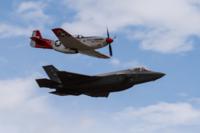
By Bennett R. Coles
Royal Canadian Navy veteran Bennett Coles has launched a new career as an author since he left the service in 2005 (full details on his Navy career here). "Virtues of War" is the first in a trilogy of military sci-fi novels and he wrote an article for us explaining how his service experiences make him a better science fiction writer.
1. How to make the military actually act like a military
Over the years, reading and watching military sci-fi, I’ve cringed at the misuse of ranks, inappropriate decisions, or the captain always leading the away team. I’ve really to bring authenticity to my military sci-fi writing by basing my future military on my own 15 years of experience in uniform.
2. How to bring realistic tactics into the story
I’ve learned how real military folk operate. My troopers hold their weapons properly, use hand real signals and actually conserve ammunition. My spaceships deploy in staggered, sprint-and-drift picket formations to guard the high-value units against different kinds of threats. And the captain never (not once) leads the away team.
3. How to make the people real
People who serve in the military are still people. They have hopes, fears, loves and ambitions just like everyone else. My military characters are anything but the stereotypical stone-faced automatons we often see, but neither are they the noble, “for God and Country” uber-heroes we also often see. My characters can display great heroism, but they can also act to advance their own careers. And sometimes they can be downright nasty to each other.
4. How to show the horror of war
War sucks. And it is a rare person indeed who isn’t changed by experiencing it. Like most of my colleagues I don’t consider myself to be particularly heroic – I was just doing my job. But many activities I undertook in my career were inherently dangerous, and I’ve lived in active war zones. These experiences change a person in subtle but real ways, and I try to show these changes in my characters as authentically as possible.
5. Understanding what real leadership is
Real leadership is rarely something obvious. More often it’s a subtle, guiding force that overcomes resistance and quietly convinces people to do what needs to be done. Real leaders do lead by example, but that doesn’t always mean they necessarily pick up a rifle and charge ahead of their troops. They sometimes do, but very often a leader will have a different function from his or her troops. Leadership can inspire through attitude, integrity, and strength of will. Leadership enables people to do their jobs well – it doesn’t do the job for them.
6. Understanding what real loyalty is
You don’t have to like the person you’re fighting beside, but you’ll protect them and know that they’ll protect you. Your officer might be a hard-ass, but you’ll follow her orders without question. And your sergeant might be a condescending old geezer, but you’ll trust his judgement with your life. In military operations, loyalty to each other and to the mission blocks out all competing emotions. Back at base you might all fight like cats and dogs, but in combat you are one unit, loyal and united.
7. Understanding the context of wars
My early years in the military were at Royal Roads Military College, where I earned a bachelor’s degree in History and Literature. My specialization was in European history around the two world wars, but I also studied the Cold War and the literature of the Vietnam War. I wrote a lot of essays, so my writing skills certainly stayed honed, but more importantly my studies gave me a broad perspective on why wars are fought and what soldiers have to endure. Wars never occur in a vacuum, and understanding why they start helped me to shape the future world I created in my writing.
8. Understanding foreign cultures
A big part of my military service was travel to foreign lands. My ship-board career took me all around the Pacific Rim, to from Japan and Russia to Australia and Samoa. Later I lived in Syria and then Lebanon while serving with the United Nations. By experiencing other cultures first-hand my mind was opened wide to how wonderful and varied human culture is – I learned to appreciate the different perspectives of other lands, and from this I was able to bring depth to the human cultures living on other worlds in my writing.
9. How to make opponents who aren’t just “bad guys”
Just as my studies taught me that wars never start without good reason, living in other countries taught me that “foreigners” are not one-dimensional caricatures. When we fight wars, we’re fighting against real people who have real thoughts and feelings. We may not agree with them, but that doesn’t mean their viewpoints are baseless. In real wars, the “bad guys” are never as simple as black-hatted cads, and having been deeply exposed to cultures very different from my own I feel that I was able to create more subtle – even sympathetic – adversaries for my military characters.
10. Valuing people over technology
There is no shortage of cool technology in the military – even more so when you bring sci-fi into it. But I long ago learned that technology is nothing more than a tool. And it’s a tool that can break. What makes a military effective is not the technology it brings to bear, but the people who serve. Because of this, my writing is very character-focused and all the nifty, high-tech gadgets are just part of the scenery for the human drama.
11. Discipline
Discipline is part of the military – no surprise there. But what many aspiring authors don’t realize is that discipline is a HUGE part of writing, too. To be a professional writer you have to write every day, no matter what you feel like, no matter if your muse has shown up or not. Professional writing takes practice, patience and determination, and I know that I could never have written three novels without the discipline that my years in uniform drilled into me.

Bennett Coles served 15 years in the Canadian Navy as a bridge officer, boarding party officer, warfare officer, and navigator, and served a pair of tours in the Middle East as a UN Military Observer. A rising Canadian author, he led the maverick publisher Promontory Press, supporting Canadian and American writers.




